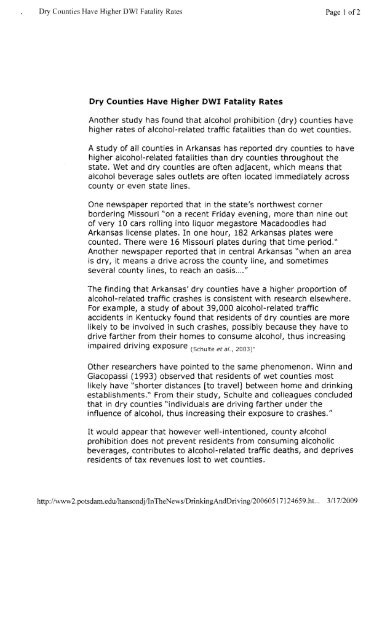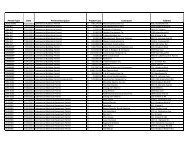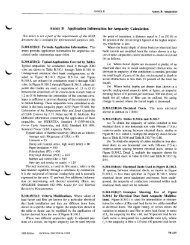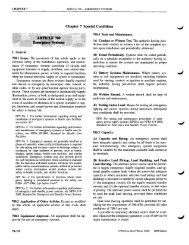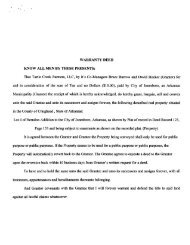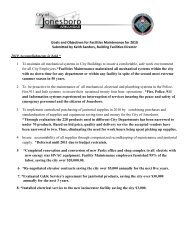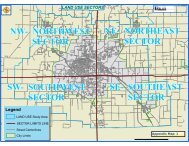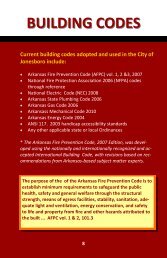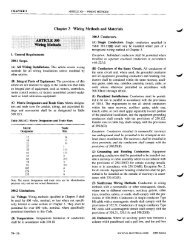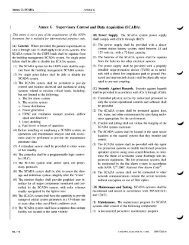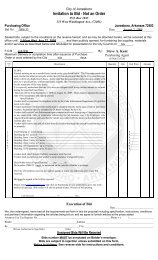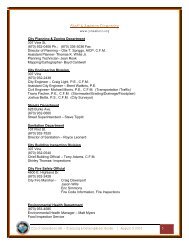Opposition material - City Clerk - City of Jonesboro
Opposition material - City Clerk - City of Jonesboro
Opposition material - City Clerk - City of Jonesboro
You also want an ePaper? Increase the reach of your titles
YUMPU automatically turns print PDFs into web optimized ePapers that Google loves.
Dry Counties Have Higher DWI Fatality Rates<br />
Page 1 <strong>of</strong>2<br />
Dry Counties Have Higher OWl Fatality Rates<br />
Another study has found that alcohol prohibition (dry) counties have<br />
higher rates <strong>of</strong> alcohol-related traffic fatalities than do wet counties.<br />
A study <strong>of</strong> all counties in Arkansas has reported dry counties to have<br />
higher alcohol-related fatalities than dry counties throughout the<br />
state. Wet and dry counties are <strong>of</strong>ten adjacent, which means that<br />
alcohol beverage sales outlets are <strong>of</strong>ten located immediately across<br />
county or even state lines.<br />
One newspaper reported that in the state's northwest corner<br />
bordering Missouri "on a recent Friday evening, more than nine out<br />
<strong>of</strong> very 10 cars rolling into liquor megastore Macadoodles had<br />
Arkansas license plates. In one hour, 182 Arkansas plates were<br />
counted. There were 16 Missouri plates during that time period."<br />
Another newspaper reported that in central Arkansas "when an area<br />
is dry, it means a drive across the county line, and sometimes<br />
several county lines, to reach an oasis.... "<br />
The finding that Arkansas' dry counties have a higher proportion <strong>of</strong><br />
alcohol-related traffic crashes is consistent with research elsewhere.<br />
For example, a study <strong>of</strong> about 39,000 alcohol-related traffic<br />
accidents in Kentucky found that residents <strong>of</strong> dry counties are more<br />
likely to be involved in such crashes, possibly because they have to<br />
drive farther from their homes to consume alcohol, thus increasing<br />
impaired driving exposure (Schulte et al., 2003)'<br />
Other researchers have pointed to the same phenomenon. Winn and<br />
Giacopassi (1993) observed that residents <strong>of</strong> wet counties most<br />
likely have "shorter distances [to travel] between home and drinking<br />
establishments." From their study, Schulte and colleagues concluded<br />
that in dry counties "individuals are driVing farther under the<br />
influence <strong>of</strong> alcohol, thus increasing their exposure to crashes."<br />
It would appear that however well-intentioned, county alcohol<br />
prohibition does not prevent residents from consuming alcoholic<br />
beverages, contributes to alcohol-related traffic deaths, and deprives<br />
residents <strong>of</strong> tax revenues lost to wet counties.<br />
http://www2.potsdam.edulhansondj/lnTheNews/DrinkingAndDriving/20060517124659.ht... 3/17/2009


